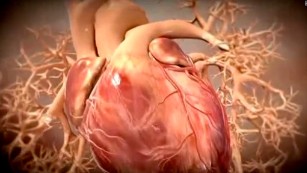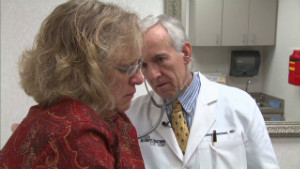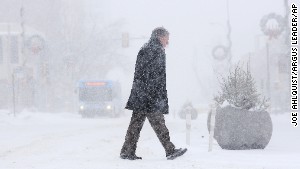"Merry Christmas Coronary" and "Happy New Year Heart Attack."(HINDI )
उत्तरी ध्रुवीय क्षेत्र से संयुक्त राज्य अमेरिका में दाखिल होने वाली प्रशीतित पवनें हाड़ और चमड़ी गलाने वाली त्वचाक्षत करने वाली ठंड ले आईं हैं। इस बरस नया साल चालीस फर्नेहाइट ज्यादा ठंडा रहेगा। और इसी के साथ फ्रॉस्टबाइट (त्वचाक्षत )शीत से चमड़ी का गलना, पैरों की तथा हाथों की उँगलियों अंगूठों की खासकर मयशेष अंगों की रक्तवाहिकाओं का सिकुड़ना एक समस्या पैदा करेगा। हालांकि यह हमारे शरीर सुरक्षा तंत्र का अपना इंतज़ाम है वह परिधीय अंगों की रक्त वाहिकाओं को आकुंचित कर देता है सिकोड़ देता है ताकि ताप ऊर्जा की शरीर से निकासी संरक्षित रहे।
भले यह शरीर के प्रमुख अंगों यथा दिल फेफड़ों आदि को बचाने की हमारे शरीर की कुदरती रणनीति है लेकिन शरीर के इन परिधीय अंगों पेरिफेरल पार्ट्स की हिफाज़त भी कम ज़रूरी नहीं है।
यहां अमरीका का नागरिक अपना कर्तव्य बोध,नागर -बोध , सामाजिक दायित्व कभी नहीं भूलता। घर के सामने के फुटपाथ से बर्फ उसे खुद किसी फावड़े से हटानी ही हटानी है। बेहतर हो एक नहीं दो दो दस्ताने पहने जाएँ ताकि उंगलियों के बीच में हवा की परतें रहें
इनके ऊपर से मिटन (mitten )यानी निरंगुल दस्ताने भी पहने जाएँ जिनमें अगूंठा के लिए अलग और चारों उँगलियों की हिफाज़त के लिए अलग दस्ताना होता है।
It helps to have a ski mask to protect your ears and your nose,"
कपड़े भी पतले -पतले लेकिन गर्म एक से ज्यादा तथा ढ़ीले ढ़ाले पहनना हिफाज़त करेगा शरीर से गर्मी की निकासी को अपेक्षाकृत ज्यादा रोकेगा। टाईट कपड़े न ही पहने इनसे ठंड का बचाव नहीं होगा ।
प्रत्येक डिग्री सेल्सियस तापमान में गिरावट दो फीसद आवर्ती वृद्धि (recurring increase )करती है दिल के दौरे के खतरों में । ठंड न खाएं ये बेहद ज़रूरी है खासकर दिल के रोगों के दमा के मरीज़।क्रोनिक ऑब्स्ट्रक्टिव पल्मनरी डिज़ीज़ के मरीज़।
लापरवाही बरतने से न सिर्फ चमड़ी के आसपास चमड़ी के भीतर भी बर्फ के रवे ,क्रिस्टल आइस के बन सकते हैं रक्त उठाने वाली नालियां ब्लड वेसिल्स तो सिकुड़ती ही हैं ताकि प्रमुख अंगों को पर्याप्त रक्तापूर्ति होती रहे। चमड़ी का सुन्न हो जाना पीड़ा रहित हो जाना शीत -क्षत(frost bite )का पुख्ता लक्षण है।
ठंड से सबसे बाहर की चमड़ी के ऊतक अतिरिक्त रूप से प्रशीतित हो जाते हैं भले इन्हें वास्तविक नुकसानी न भी पहुंचे इसी स्थिति को frostnip शीत -क्षत से पूर्व की स्थिति कहा जाता है। इस स्थिति में चमड़ी बदरंग भी हो सकती है सुर्ख भी बेहद संवेदी भी जलन भी महसूस हो सकती है चमड़ी में। यह चेतावनी है ठंड की के बचाओ चमड़ी को मैं आई आई आई आई।
फ्रॉस्टबाइट वास्तविक रूप में होने पर चमड़ी को नुकसानी भी वास्तविक ही उठानी पड़ती है पीत वर्ण की हो जाती है चमड़ी इस स्थिति में -मोमिया और पर्पल कलर की भी हो सकती है आपकी त्वचा फ्रॉस्टबाइट से । यकीन मानिये बर्फ भी डस लेती है ऊतकों को टिशूज़ को ।चमड़ी काली भी पड़ सकती है। ऊतक नष्ट भी हो सकते हैं।सुन्न और पीड़ा रहित भी। मृत कायिक अवयव में कैसी पीड़ा। कोशिकाओं के अंदर बाहर भी बर्फ के क्रिस्टल बन ने लगते हैं।
आँखों की हिफाज़त ज्यादा ज़रूरी
फ्रॉस्टबाइट आँखों को भी असरग्रस्त कर सकती है।ऐसे में चमड़ी पर महीन क्रिस्टल भी बन सकते हैं blisters भी। फफोला या छाला बन सकता है बारीक। ऐसे में रक्त वाहिकाओं का बेहद का सिकड़ाव आँखों को भी क्षति पहुंचा सकता है सिर्फ चमड़ी को ही नहीं। क्योंकि रक्तवाहिकाएं आँखों को रक्तापूर्ति करवाने में असमर्थ होने लगती है इसी ब्लड वेसिल्स के अतिरिक्त कॉन्सट्रिक्शन की वजह से।
Hypothermia
रक्त वाहिकाओं का अतिरिक्त सिकड़ाव शरीर के तापमान को सामान्य से नीचे (95 F or 37 C )ला सकता है इसका मतलब यह होता है शरीर से गर्मी निकल ज्यादा रही है प्राप्त कम हो रही है।
In hypothermia core temp of the body decreases or drops below normal.
यही सबसे खतरनाक स्थिति होती है जो शरीर के जतन से बचाके रखे गए प्रमुख अंगों यथा दिल दिमाग ,और गुर्दे और स्नायुविक तंत्र ,(nervous system )को ही ले बैठती है। इसी से बचाव की रणनीति के तहत तमाम रक्तवाहिकाएँ संकुचित हो रही थीं। ताकि चमड़ी की ओर कम इन अंगों को ज्यादा रक्त निर्बाध पहुंचता रहे।ताप ऊर्जा का प्रवाह भी बाहर की तरफ न होकर अंदर की तरफ होकर इन अगों को गरमाये रहे ।
दिल की लय के बे -तरह बिगड़ने से इस स्थिति में मृत्यु भी हो सकती है। वैश्विक स्तर पर भी लोग इस प्रकार की अरक्षित शीत से ज्यादा गर्मी /लू से कम मरते हैं।
सर्द मौसम वसोकोन्सट्रिक्टर बन जाता है। रक्त वाहिकाओं को सिकोड़ के रख देता है।लिहाज़ा हार्ट अटेक और स्ट्रोक (ब्रेन अटैक )के मामले बढ़ जाते हैं
खासकर लापरवाह बने रहने पर। शवलिंग ज्यादा न करें ये लोग जिनका इलाज़ पहले से ही इन्हीं स्थितियों से बचे रहने के लिए चल रहा है।
खतरे हार्ट और कार्डियोवैस्कुलर हार्ट डिजीज के लिए दवा ले रहे बुजुर्गों के लिए ज्यादा हो जाते हैं जिन्हें कई मर्तबा ठंड लगने का एहसास भी नहीं हो पाता इसीलिए इस बर्फीले मौसम में एल्कोहॉल का सेवन और भी ज्यादा खतरे पैदा कर सकता है। पियक्कड़ ही ठंड खाते हैं। ठंड का एहसास जो नहीं होता नशे की हालत में संवेदन भी कमतर हो जाता है ठंड ताड़ने का।
Alcohol also causes dilatation of the body's blood vessels, increasing heat loss," she said.
यकीन मानिये रक्त वाहिकाओं को विस्तारित करके फैला देती है शराब ऐसे भी शरीर का ठंड रोधी प्रबंध नाकारा हो जाता है।
दमे के लोगों के लिए सरल सा उपाय है मफलर लेवें नाक को ढके रहें ताकि अपनी ही गर्म साँसे मिलती रहें। नासिका मार्ग श्वसन मार्ग खुला रहे।
रीढ़ और कमर की समस्या से ग्रस्त लोग शवलिंग (बर्फ हटाने )से अपने को बे -हिसाब न थकाएं।हार्ट के मरीज़ भी अपनी सीमाओं को पहचानें।
और कुछ न कुछ व्यायाम हरकत स्ट्रेचिंग आदि भी घर में करते रहिये ताकि रक्त संचरण सुचारु बना रहे।मोटापे से बचे रहने के लिए इसके अलावा इस सर्द बर्फीले मौसम में खाना पीना भी स्वास्थ्यकर हो ,फल में एक एपिल और टमाटर तो दो रोज़ खा ही सकते हैं .
दमे के मरीज़ों के लिए सर्द मौसम ब्रोन्कोस्पासम (ब्रोन्कोस्पासं)की वजह बन जाता है।फेफड़ों रुपी वृक्षों से लटकी हुई सैंकड़ों हवा की थैलियां सिकुड़ जाती हैं इस स्थिति में।
क्रोनिक पल्मोनरी ऑब्स्ट्रक्टिव डिज़ीज़ के लक्षण उग्र होने के मौके बढ़ जाते हैं। केजरीवाल बन जाइये अपनी नासिका को मफलर से ढ़के रहिये।ताकि अपने ही श्वास से गरमाई हवा आपको मिलती रहे।
मूल आलेख अंग्रेजी में भी पढ़िए :
उत्तरी ध्रुवीय क्षेत्र से संयुक्त राज्य अमेरिका में दाखिल होने वाली प्रशीतित पवनें हाड़ और चमड़ी गलाने वाली त्वचाक्षत करने वाली ठंड ले आईं हैं। इस बरस नया साल चालीस फर्नेहाइट ज्यादा ठंडा रहेगा। और इसी के साथ फ्रॉस्टबाइट (त्वचाक्षत )शीत से चमड़ी का गलना, पैरों की तथा हाथों की उँगलियों अंगूठों की खासकर मयशेष अंगों की रक्तवाहिकाओं का सिकुड़ना एक समस्या पैदा करेगा। हालांकि यह हमारे शरीर सुरक्षा तंत्र का अपना इंतज़ाम है वह परिधीय अंगों की रक्त वाहिकाओं को आकुंचित कर देता है सिकोड़ देता है ताकि ताप ऊर्जा की शरीर से निकासी संरक्षित रहे।
भले यह शरीर के प्रमुख अंगों यथा दिल फेफड़ों आदि को बचाने की हमारे शरीर की कुदरती रणनीति है लेकिन शरीर के इन परिधीय अंगों पेरिफेरल पार्ट्स की हिफाज़त भी कम ज़रूरी नहीं है।
यहां अमरीका का नागरिक अपना कर्तव्य बोध,नागर -बोध , सामाजिक दायित्व कभी नहीं भूलता। घर के सामने के फुटपाथ से बर्फ उसे खुद किसी फावड़े से हटानी ही हटानी है। बेहतर हो एक नहीं दो दो दस्ताने पहने जाएँ ताकि उंगलियों के बीच में हवा की परतें रहें
इनके ऊपर से मिटन (mitten )यानी निरंगुल दस्ताने भी पहने जाएँ जिनमें अगूंठा के लिए अलग और चारों उँगलियों की हिफाज़त के लिए अलग दस्ताना होता है।
It helps to have a ski mask to protect your ears and your nose,"
कपड़े भी पतले -पतले लेकिन गर्म एक से ज्यादा तथा ढ़ीले ढ़ाले पहनना हिफाज़त करेगा शरीर से गर्मी की निकासी को अपेक्षाकृत ज्यादा रोकेगा। टाईट कपड़े न ही पहने इनसे ठंड का बचाव नहीं होगा ।
प्रत्येक डिग्री सेल्सियस तापमान में गिरावट दो फीसद आवर्ती वृद्धि (recurring increase )करती है दिल के दौरे के खतरों में । ठंड न खाएं ये बेहद ज़रूरी है खासकर दिल के रोगों के दमा के मरीज़।क्रोनिक ऑब्स्ट्रक्टिव पल्मनरी डिज़ीज़ के मरीज़।
लापरवाही बरतने से न सिर्फ चमड़ी के आसपास चमड़ी के भीतर भी बर्फ के रवे ,क्रिस्टल आइस के बन सकते हैं रक्त उठाने वाली नालियां ब्लड वेसिल्स तो सिकुड़ती ही हैं ताकि प्रमुख अंगों को पर्याप्त रक्तापूर्ति होती रहे। चमड़ी का सुन्न हो जाना पीड़ा रहित हो जाना शीत -क्षत(frost bite )का पुख्ता लक्षण है।
ठंड से सबसे बाहर की चमड़ी के ऊतक अतिरिक्त रूप से प्रशीतित हो जाते हैं भले इन्हें वास्तविक नुकसानी न भी पहुंचे इसी स्थिति को frostnip शीत -क्षत से पूर्व की स्थिति कहा जाता है। इस स्थिति में चमड़ी बदरंग भी हो सकती है सुर्ख भी बेहद संवेदी भी जलन भी महसूस हो सकती है चमड़ी में। यह चेतावनी है ठंड की के बचाओ चमड़ी को मैं आई आई आई आई।
फ्रॉस्टबाइट वास्तविक रूप में होने पर चमड़ी को नुकसानी भी वास्तविक ही उठानी पड़ती है पीत वर्ण की हो जाती है चमड़ी इस स्थिति में -मोमिया और पर्पल कलर की भी हो सकती है आपकी त्वचा फ्रॉस्टबाइट से । यकीन मानिये बर्फ भी डस लेती है ऊतकों को टिशूज़ को ।चमड़ी काली भी पड़ सकती है। ऊतक नष्ट भी हो सकते हैं।सुन्न और पीड़ा रहित भी। मृत कायिक अवयव में कैसी पीड़ा। कोशिकाओं के अंदर बाहर भी बर्फ के क्रिस्टल बन ने लगते हैं।
आँखों की हिफाज़त ज्यादा ज़रूरी
फ्रॉस्टबाइट आँखों को भी असरग्रस्त कर सकती है।ऐसे में चमड़ी पर महीन क्रिस्टल भी बन सकते हैं blisters भी। फफोला या छाला बन सकता है बारीक। ऐसे में रक्त वाहिकाओं का बेहद का सिकड़ाव आँखों को भी क्षति पहुंचा सकता है सिर्फ चमड़ी को ही नहीं। क्योंकि रक्तवाहिकाएं आँखों को रक्तापूर्ति करवाने में असमर्थ होने लगती है इसी ब्लड वेसिल्स के अतिरिक्त कॉन्सट्रिक्शन की वजह से।
Hypothermia
रक्त वाहिकाओं का अतिरिक्त सिकड़ाव शरीर के तापमान को सामान्य से नीचे (95 F or 37 C )ला सकता है इसका मतलब यह होता है शरीर से गर्मी निकल ज्यादा रही है प्राप्त कम हो रही है।
In hypothermia core temp of the body decreases or drops below normal.
यही सबसे खतरनाक स्थिति होती है जो शरीर के जतन से बचाके रखे गए प्रमुख अंगों यथा दिल दिमाग ,और गुर्दे और स्नायुविक तंत्र ,(nervous system )को ही ले बैठती है। इसी से बचाव की रणनीति के तहत तमाम रक्तवाहिकाएँ संकुचित हो रही थीं। ताकि चमड़ी की ओर कम इन अंगों को ज्यादा रक्त निर्बाध पहुंचता रहे।ताप ऊर्जा का प्रवाह भी बाहर की तरफ न होकर अंदर की तरफ होकर इन अगों को गरमाये रहे ।
दिल की लय के बे -तरह बिगड़ने से इस स्थिति में मृत्यु भी हो सकती है। वैश्विक स्तर पर भी लोग इस प्रकार की अरक्षित शीत से ज्यादा गर्मी /लू से कम मरते हैं।
सर्द मौसम वसोकोन्सट्रिक्टर बन जाता है। रक्त वाहिकाओं को सिकोड़ के रख देता है।लिहाज़ा हार्ट अटेक और स्ट्रोक (ब्रेन अटैक )के मामले बढ़ जाते हैं
खासकर लापरवाह बने रहने पर। शवलिंग ज्यादा न करें ये लोग जिनका इलाज़ पहले से ही इन्हीं स्थितियों से बचे रहने के लिए चल रहा है।
खतरे हार्ट और कार्डियोवैस्कुलर हार्ट डिजीज के लिए दवा ले रहे बुजुर्गों के लिए ज्यादा हो जाते हैं जिन्हें कई मर्तबा ठंड लगने का एहसास भी नहीं हो पाता इसीलिए इस बर्फीले मौसम में एल्कोहॉल का सेवन और भी ज्यादा खतरे पैदा कर सकता है। पियक्कड़ ही ठंड खाते हैं। ठंड का एहसास जो नहीं होता नशे की हालत में संवेदन भी कमतर हो जाता है ठंड ताड़ने का।
Alcohol also causes dilatation of the body's blood vessels, increasing heat loss," she said.
यकीन मानिये रक्त वाहिकाओं को विस्तारित करके फैला देती है शराब ऐसे भी शरीर का ठंड रोधी प्रबंध नाकारा हो जाता है।
दमे के लोगों के लिए सरल सा उपाय है मफलर लेवें नाक को ढके रहें ताकि अपनी ही गर्म साँसे मिलती रहें। नासिका मार्ग श्वसन मार्ग खुला रहे।
रीढ़ और कमर की समस्या से ग्रस्त लोग शवलिंग (बर्फ हटाने )से अपने को बे -हिसाब न थकाएं।हार्ट के मरीज़ भी अपनी सीमाओं को पहचानें।
और कुछ न कुछ व्यायाम हरकत स्ट्रेचिंग आदि भी घर में करते रहिये ताकि रक्त संचरण सुचारु बना रहे।मोटापे से बचे रहने के लिए इसके अलावा इस सर्द बर्फीले मौसम में खाना पीना भी स्वास्थ्यकर हो ,फल में एक एपिल और टमाटर तो दो रोज़ खा ही सकते हैं .
दमे के मरीज़ों के लिए सर्द मौसम ब्रोन्कोस्पासम (ब्रोन्कोस्पासं)की वजह बन जाता है।फेफड़ों रुपी वृक्षों से लटकी हुई सैंकड़ों हवा की थैलियां सिकुड़ जाती हैं इस स्थिति में।
क्रोनिक पल्मोनरी ऑब्स्ट्रक्टिव डिज़ीज़ के लक्षण उग्र होने के मौके बढ़ जाते हैं। केजरीवाल बन जाइये अपनी नासिका को मफलर से ढ़के रहिये।ताकि अपने ही श्वास से गरमाई हवा आपको मिलती रहे।
मूल आलेख अंग्रेजी में भी पढ़िए :
Story highlights
- Wintry weather associated with risks for heart attacks, asthma symptoms, frostbite and hypothermia
- Dressing in layers is key when the weather outside is frightful
(CNN)Baby, it's cold outside -- really, really cold -- and many of us first feel the freezing temperatures of winter in our toes and fingertips before elsewhere in the body.
This happens as your body works to protect your vital organs from the cold, said Dr. Suzanne Salamon, associate chief of clinical programs at Beth Israel Deaconess Medical Center in Boston.
"The blood vessels in all different parts of the body will constrict," she said. "They'll get smaller to try to preserve heat.
"What the body tries really hard to do is to protect the most important organs, which are the ones deep inside: the heart and brain and lungs," she said. "The body tries to keep those warm by redirecting heat from the fingers and toes inward, so the blood vessels in the fingers and toes get really small, and not enough blood goes through them."
This is important for the body to do -- and to do quickly -- because wintry weather has been associated with health risks for heart attacks, asthma symptoms, frostbite and hypothermia.
Globally, more temperature-attributable deaths tend to be caused by cold than by heat, according to a 2015 study published in the journal The Lancet.
A cold-hearted risk
Frosty weather can affect your heart, especially if you have cardiovascular disease. "You always hear about people going out and shoveling snow and having a heart attack," Salamon said.
Cold weather can act as a vasoconstrictor, which means your blood vessels narrow, and that can play a role in raising the risk of heart attack, according to a 2014 Harvard Health Letterpublished by Harvard Medical School.
"Snow shoveling is one example where we see people who have heart disease, or risk factors for heart disease, exerting themselves more than they may otherwise. Shoveling is hard work; people who have cardiac disease and back problems are at higher risk for injury or illness while shoveling," said Dr. Reed Caldwell, an assistant professor in the Ronald O. Perelman Department of Emergency Medicine at NYU Langone Medical Center and an emergency department physician.
A mere 1-degree Celsius reduction in temperature was associated with a cumulative 2% increased risk for heart attack, according to a 2010 study published in the British Medical Journal.
The study involved data on 84,010 hospital admissions for heart attacks in England and Wales between 2003 and 2006. The researchers analyzed the data to determine any possible relationship between outdoor temperature and heart attack occurrences.
Some other studies have also found a correlation between the winter season and heart attacks and stroke, and the phenomenon has been sometimes referred to as "Merry Christmas Coronary" and "Happy New Year Heart Attack."
However, the heart isn't the only part of the body that might be vulnerable to health problems in the winter.
Cold weather can wreak havoc on your lungs, as dry air may irritate the airways, especially for people with lung diseases such as asthma, according to the American Lung Association.
"Cold air causes bronchospasm, so people with asthma and COPD can find themselves having increased symptoms in the winter months," Caldwell said.
If you have asthma and are exposed to cold weather, "wear a scarf around your nose. That certainly helps, because then you're breathing in your own steam from your mouth," Salamon said.
On the other hand, a more well-known, cold-related health issue is frostbite.
Frostbite: A danger even for the eyes
Frostbite can occur in freezing temperatures when your blood vessels narrow, skin temperature drops and ice crystals form around and within your cells, causing damage.
"There's a continuum of cold-related skin injury. The first is called 'frostnip,' and that is a cooling of the outermost skin tissue without any actual destruction to the tissue. You know this is happening because the skin can become discolored, sometimes bright red, and can look irritated and feel extra sensitive, and that's a good warning sign that the skin is getting too cold," Caldwell said.
"Then, frostbite involves actual skin destruction, and frostbitten skin usually appears pale, waxy, and can sometimes turn even purple or black as the tissue begins to die. Frostbitten skin can be numb or painless," he said.
Frostbite can even occur in your eyes, Salamon said. "When you're out in the cold windy weather, you can actually get frostbite of your eyes, which is really dangerous," Salamon said.
"The cold starts to form little blisters in your eye or little crystals on your skin, which can turn around and damage the skin or the eye itself," she said. "Those blood vessels really get very constricted, so there's not much blood going through it, which cuts down on the circulation of the eyes."
The blood vessels are constricting in order to prevent hypothermia, a dangerous condition that occurs when your body loses more heat than it produces, causing the body's core temperature to drop below 95 degrees Fahrenheit.
"The most worrisome health effect from cold exposure is hypothermia, which can cause damage to vital organs, including the heart, nervous system and kidneys. In extreme cases, death can occur. This often is a result of abnormal cardiac rhythms," said Dr. Jeahan Colletti, an emergency medicine specialist at the Mayo Clinic in Rochester, Minnesota.
Those most at risk for hypothermia -- and any cold-related health hazard -- tend to be older adults, Salamon said.
"If people have a neighbor who is an older person, when there's weather that's really cold, they should check up on them. When people get really, really cold, they can get very confused and not even know enough to call for help," she said.
Tips to stay warm and healthy
What can people do to stay warm and healthy this winter? An important risk-reducing measure hinges on wardrobe.
"It's really important to dress in layers, so ... put on more than one pair of gloves and then a mitten on top of that, because the air that's trapped in between those layers help to keep you warm," Salamon said.
"Tight-fitting clothes are not a good thing, because you're not able to get the benefit of the layers. You really need to have looser sweaters, shawls if you're sitting inside, to try to layer up. It helps to have a ski mask to protect your ears and your nose," she said. "If you get wet, like if you're out playing in snow or shoveling snow, take off wet clothes, because the wet clothes really make it worse. They make things colder. ... Boots should be waterproof."
Preventive measures not only involve dressing for the cold but also avoiding too many cocktails in cold weather, said Colletti, the Mayo Clinic specialist.
"Avoid drinking alcohol when in the cold, as mental awareness is impaired, thereby limiting ability to recognize symptoms of significant cold exposure. Alcohol also causes dilatation of the body's blood vessels, increasing heat loss," she said.
Cold weather is also associated with weight gain, so another tip to stay warm and healthy this winter is to keep moving, said Dr. Luis Navarro, a physician and founder of the Vein Treatment Center in New York.
"Weight gain is common during the colder holiday months, and this can put our legs and circulatory system under more stress. Weight gain and colder temperatures could make varicose veins and spider veins worsen, due to the fact that blood is not efficiently pumping through the body," Navarro said.
"Even though it's cold, exercising and moving around helps to optimize circulation, which not only helps to keep our circulatory system healthy, but it can also help to keep us warm," he said. "Also, if you do experience leg pain as a result of restricted blood flow, I suggest elevating the legs for periods throughout the day so that they are raised above the heart. This helps maximize circulation."



























My name is hoover, my 18 years old daughter, Tricia was diagnosed of herpes 3 years ago. ever since then,we have been going from one hospital to the other. We tried all sorts of pills but all efforts to get rid of the virus was futile. The blisters kept on reappearing after some months. My daughter was making use of Acyclovir tablets 200mg. 2 tablets every 6hours and fusitin cream 15grams. and H5 POT. Permanganate with water to be applied 2x a day but all still show no result. So I was on the internet some months back, to sought for any other means of saving my only child. just then, i came across a comment on dr imoloa herbal treatment and decided to give it a try. i contacted the him and he prepared some herbs and sent it to me together with guidelines on how to use the herbs through DHL courier service. my daughter used it as directed dr imoloa and in less than 14days, my daughter regained her health.. You should contact Dr imoloa today directly on his email address for any kind of health challenge; lupus disease, mouth ulcer, mouth cancer, body pain, fever, hepatitis A.B.C., syphilis, diarrhea, HIV/AIDS, Huntington's Disease, back acne, Chronic renal failure, addison disease, Chronic Pain, Crohn's Disease, Cystic Fibrosis, Fibromyalgia, Inflammatory Bowel Disease, fungal nail disease, Lyme Disease, Celia disease, Lymphoma, Major Depression, Malignant Melanoma, Mania, Melorheostosis, Meniere's Disease, Mucopolysaccharidosis , Multiple Sclerosis, Muscular Dystrophy, Rheumatoid Arthritis, Alzheimer's Disease, parkison disease, vaginal cancer, epilepsy, Anxiety Disorders, Autoimmune Disease, Back Pain, Back Sprain, Bipolar Disorder, Brain Tumour, Malignant, Bruxism, Bulimia, Cervical Disk Disease, cardiovascular disease, Neoplasms, chronic respiratory disease, mental and behavioural disorder, Cystic Fibrosis, Hypertension, Diabetes, asthma, Inflammatory autoimmune-mediated arthritis. chronic kidney disease, inflammatory joint disease, impotence, feta alcohol spectrum, Dysthymic Disorder, Eczema, tuberculosis, Chronic Fatigue Syndrome, constipation, inflammatory bowel disease. and many more; contact him on email- drimolaherbalmademedicine@gmail.com./ also on whatssap-+2347081986098.
जवाब देंहटाएं